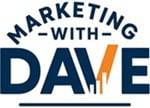Case Study: 7‑Up’s “Uncola” Campaign — Disrupting the Cola Establishment
Brief Summary In the late 1960s, 7‑Up broke away from cola conventions with its iconic “Uncola” campaign. Instead of competing directly with Coke or Pepsi, it embraced bold visuals, countercultural vibes, and clever messaging to position itself as the alternative choice — ultimately boosting sales and brand identity. Company Involved 7‑Up Marketing Topic Public Reaction or Consequences The campaign struck a chord amid youth rebellion and counterculture movements. Sales reportedly jumped by as much as 30 to 56 percent following the launch. However, by the 1990s, the campaign’s youthful edge aged, prompting a rebrand in 1998. Why It Matters Today
